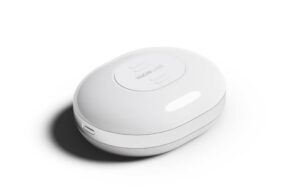
Last month, the company unveiled the prototype for its proprietary non-invasive sensor technology. Its proprietary Bio-RFID technology uses spectroscopy to direct electromagnetic energy through a substance or material. Through this, it can capture a unique molecular signature. The Know Labs technology integrates into wearable, mobile or bench-top form factors.
Seattle-based Know Labs’ study showed that continued algorithm refinement and more high-quality data improved the sensor’s accuracy. Results included in an overall mean absolute relative difference (MARD) of 11.3%.
The study assessed the ability of the Bio-RFID sensor to non-invasively and continuously quantify blood glucose. It used the Dexcom G6 CGM as a reference device. The study completed its data collection in May of this year, according to a news release.
Know Labs applied novel data preprocessing techniques and trained a light gradient-boosting machine (lightGBM) model. This predicted blood glucose values using 3,311 observations (or reference device values) from more than 330 hours of data. Thirteen healthy subjects participated.
With this method, Know Labs predicted blood glucose in the test set with a MARD of 11.3%. Comparatively, the company shared study results in May from 1,555 observations over 130 hours with a MARD of 12.9%.
The company continues testing for its first-generation sensor prototype with an eye on eventually garnering FDA clearance. It said it wants to collect more high-quality, high-resolution data across a diverse participant population.

